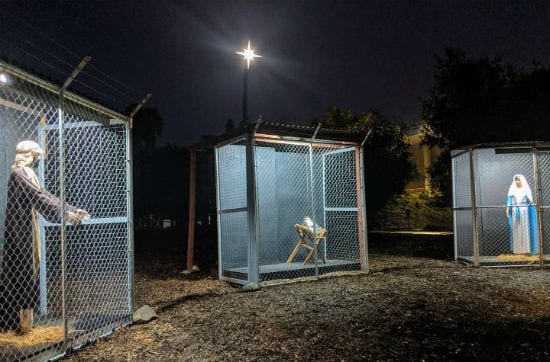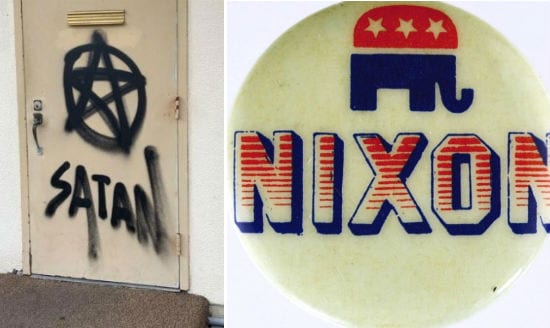Fred Kaplan continues his insightful reporting on the occupation of Iraq with "More Dinars Please" — a look at the invaluable Commanders' Emergency Response Program:
The program started in May, shortly after President Bush declared the war over, when American soldiers in Baghdad unearthed mounds of cash that Saddam Hussein and his two sons had hidden away. Occupation authorities decided to put Saddam's stash to good purpose. They distributed it to U.S. military commanders, who used it to clean sewers, fix water pumps, buy medicine, paint schools, reopen factories, fill urgent needs — in short, to make possible all the good-news stories in Iraq.
CERP funds have gone to more than 12,000 projects in Iraq. These projects are mostly complete, while the more massive and massively expensive reconstruction projects entrusted to multinational contractors like Halliburton and Bechtel have barely begun.
These smaller projects are also preferable in that they employ Iraqis in the rebuilding of their own country. Unemployment is a staggering problem right now in Iraq — and some of the many unemployed seem to be occupying themselves with violent resistance against the U.S.-led occupation. At the same time, nearly all of the country is in desperate need of rebuilding and repair. This is, to borrow a phrase from Wendell Berry, a solution neatly divided into two problems. Employing Iraqis in the reconstruction of their country should be a top priority — even if it meant a costlier and less efficient rebuilding process.
As it turns out, however, employing Iraqis is actually far cheaper and more efficient than relying on the corporate experts — see "Half a Bridge" and "Epcot on the Euphrates."
The hands-on involvement of the people also creates a sense of participation and ownership — things we should be nurturing if we hope to see Iraq successfully emerge from uner decades of tyranny.
The deeply troubling news that Kaplan brings is that the CERP funds are almost gone:
Within a couple weeks, if it hasn't happened already, CERP will dry up. …
Anthony Cordesman, a senior defense analyst at the Center for Strategic and International Studies in Washington, D.C., … listed a dozen ways that the United States could lose the ongoing war for Iraq. One of them was "a failure to maintain CERP funds to allow effective civil-military aid and engagement programs."
Kaplan points to a possible way to avert this crisis — Donald Rumsfeld's "slush fund":
Buried inside President Bush's $87 billion defense supplemental bill, which Congress passed last month for military operations and economic assistance in Iraq and Afghanistan, is a $9.3 billion "transfer fund" that Secretary of Defense Donald Rumsfeld can move around from one program to another at his discretion. Much of this discretion applies only to money for combat supplies or construction projects. However, one clause of the bill reads:
"Upon the determination that such action is necessary in the national interest, the Secretary of Defense may transfer between appropriations up to $5 billion the funds made available in this title."
Elsewhere, the bill notes that the president may transfer "any appropriation made available in the title," as long as the amount does not exceed $200 million. …
Rumsfeld and Bush have an opportunity for budgetary redemption. Transfer some of that money to CERP. Instruct Bremer to give a wink and a nudge to the commanders who used the first stash wisely.
If Cordesman's analysis is correct, then the success or failure of the future of Iraq may depend on how President Bush decides to spend this $5 billion. He could, as Kaplan urges, transfer the money to continue funding CERP — promoting effective rebuilding, engaging and employing Iraqis in the rebirth of their nation. Or Bush could shift these funds over to the Halliburton side of the ledger, further enriching his corporate cronies.
The outlook, in other words, isn't good.












